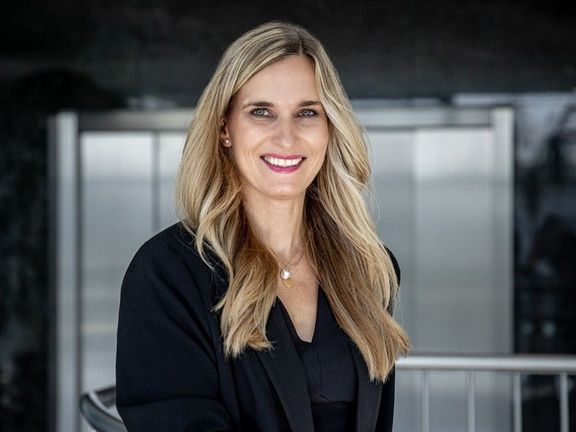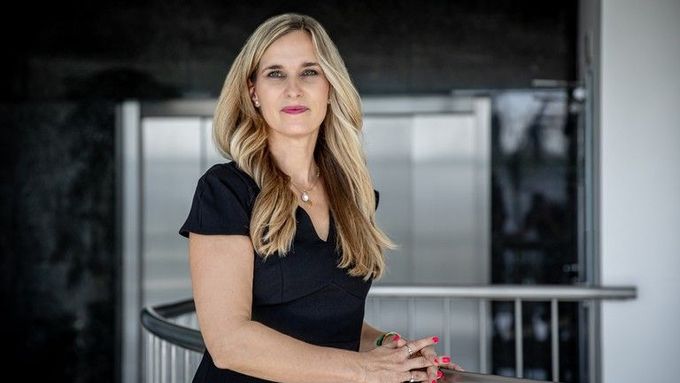One of our flagship products is the HR system OKbase, which is why we are very active in the HR community. Collaborating with HR students was a natural next step for us. We want to stay in contact with future HR professionals, passing on our practical know-how in digitizing HR processes and personnel information systems in general. In return, we receive very valuable feedback from the upcoming generation. This dialogue is essential for us. I myself studied at the University of Economics (VŠE) years ago and remember that practical lectures and internships were always the most interesting to me.
What does the collaboration with the school look like in practice?
We have been a partner of the Department of Human Resources at the Faculty of Business Administration of VŠE since 2022. We started the collaboration with lectures and workshops for HR students and those from other fields. We also participate in VŠE's Innovation Weeks, during which we invite students directly to our company. The topics are mainly the digitization of HR processes and the use of artificial intelligence in HR processes. We want to show students what the daily work of an HR professional looks like in practice and how they can make it easier using the latest technologies. This year, the collaboration resulted in the preparation of the course "Innovation in HR from Digitization to Artificial Intelligence," in which we are currently lecturing.
How many of your employees teach at VŠE?
This year, a total of five of us will take turns in the role of lecturers. My lectures focus on communication towards employees and HR processes. Our Director of Development will talk about how our product OKbase helps in digitizing HR, where he sees the benefits of using artificial intelligence (AI) algorithms, but also what the risks are. Colleagues from the implementation team will then guide students through practical demonstrations directly in OKbase. Our Head of the Project Management Department will focus on how to effectively implement processes in the company. We have also invited one of our customers to provide their perspective from the other side.
Was it difficult to persuade your colleagues to stand before the students?
It wasn't that difficult, but I definitely don't take it for granted. I'm fortunate because when I talk to other HR professionals, they mention that it's often challenging to motivate employees to give lectures or lead courses. Preparation is necessary; for some, it can be stressful, especially in the IT field where introverts often work. I'm thrilled that we have employees who are happy to engage with students.
Does it pay off for the company?
It does, because we stay in the loop. I ask students direct questions and am interested in how the new generation perceives the things we do. It's a kind of barter. They come to learn something in class, and so do I.
Are students interested in innovation?
Absolutely. They grew up with modern technologies, and using them is natural for them. When I ask who uses ChatGPT or similar AI tools, there's no one who doesn't raise their hand. If we then employ any of the students, it's not just a job opportunity for them; it's a way for us to keep up with new technologies. I think it's a win-win situation.
Do you involve students in work at your company?
The company has taken collaboration with students to the next level, and this year we created the OKlab department within the company. It's our internal research center aimed at coming up with innovative ideas for implementation into our products or those that help our employees simplify their work. The department now employs six enthusiastic students from universities and high schools who, under the supervision of a leader, explore new technologies and look for ways to take our processes a step further.
Why did you establish OKlab?
There are multiple reasons. We are an IT company and don't want to lose our status as a technological leader. We will also be happy if talented students prove themselves with us and continue to work here. We have around five hundred employees, and many of them have been with us for a long time; students are like a breath of fresh air.
How can AI be used in HR?
AI technologies can be effectively used in recruitment, internal communication, HR processes, and HR systems—for example, for efficient shift planning. The possibilities are endless, but I always tell students that they should approach the use of AI cautiously. They should think about whether we will have real benefits from its use and not implement it just so we can say we're using it.

And how do you specifically use artificial intelligence in your HR department?
For example, during onboarding. Since the beginning of the year, we've been using interactive videos to show new employees how things work in the company. The guide in the video is my avatar, which looks like me and, since last month, even speaks with my voice—this shows you how quickly development is progressing. We've added images, graphs, and real interviews with our colleagues, making the resulting video even more engaging. Previously, we filmed similar videos. A cameraman and lighting technician would come, and there was a lot of work involved. Often, a single part had to be re-shot multiple times due to slip-ups. This method is much simpler and more efficient. When some information changes, we don't have to re-record the entire video; we just adjust the input for the artificial intelligence.
Will you continue to develop the use of avatars?
Definitely yes. We already have several in the company. In cooperation with OKlab, we are preparing video manuals for our products; we use avatars for internal communication and training. Compared to producing real videos, it's an incredible saving of time and money. The videos can be easily edited, which is a significant advantage in today's rapidly changing times.
Do you also have internships at your company?
In the spring, we had students from technically oriented high schools here. When organizing, we somewhat encountered time constraints of the supervisors. However, practice showed that students can be an asset to the teams. We subsequently approached one of the students, and he is already employed at OKlab. I believe that once word spreads within the company, more and more departments will want to get involved in internships. There is demand from the students' side.

